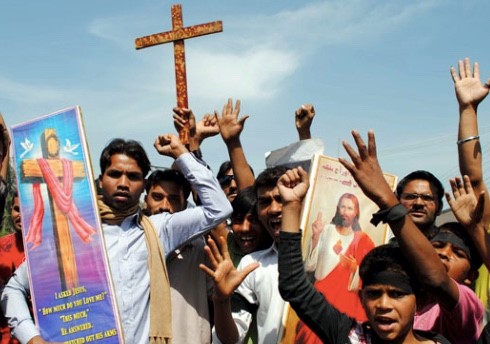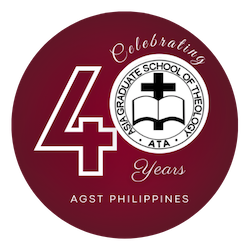PhD in Peace Studies
“Restoring community and building
lasting peace through the church”
We live in a broken world. More refugees daily flood into countries across the world from violently conflicted countries than at any time in history. Nations are increasingly divided against themselves by tribe, by privilege but also by philosophical orientation. We now speak of the extreme right and the extreme left and wonder if the middle is excluded. Our churches feel the pull of conflict, dividing not only over the old lines of denomination but now the new uncertainties of gender issues and lifestyle choices. And our families are divided. We are uncertain how to dialog between traditionalist grandparents and a modern experimenting “plugged in” generation.
Peace Keeping
Yes, Peace Studies is about the “blue helmet” peace keeping in violent countries of the world. You may wonder what that has to do with the Church. Currently, the UN has active peacekeeping missions in 14 countries. Only 6 of those are places where the church does NOT have a viable presence. What has happened to the witness of Christ in these violent places? How ought the church work with peacekeepers if they believe in the Peacemaker?

Peace Building
Yes, Peace Studies is about “peace building”. Why shouldn’t it be the church’s role to build bridges between people of difference, reaching out to those who are “not us”? Jesus took his disciples to the town of Sychar just to help them understand the place of the Samaritan in His Kingdom.

Peace Building
Yes, Peace Studies is about “peace building”. Why shouldn’t it be the church’s role to build bridges between people of difference, reaching out to those who are “not us”? Jesus took his disciples to the town of Sychar just to help them understand the place of the Samaritan in His Kingdom.

Peace Making
And YES, Peace Studies is about “peace making”. When relationships are strained in your family, your church, your school, or your organization, YOU need to know what to do that helps heal that brokenness rather than make it worse. Do you negotiate to win or to build? Do you look for a mediator who agrees with you or who will help resolve the issues as well as the relationships? Do you know how to help others in their conflict…or only make it worse?

Peace Studies at IGSL
The Peace Studies program seeks to build scholars, practitioners, and researchers and prepare them with a platform for making lasting social and kingdom impact in many of the situations today that need the gospel the most.
This program is in cooperation with the Asia Graduate School of Theology-Philippines.
This program is accredited by the ATA and is recognized by the CHED.
What are the participants saying?
“The program becomes a life-formation process, not just classroom education! The mentoring aspect of the program was excellent . . . As we take what we’ve learned and applied it, it has been powerful for our organizations.”
“I appreciate the learning community & network of international relationships . . . [The new friendships] are really valuable. I did not expect this in a doctoral program.”
“Our goal isn’t to simply understand conflict, but to resolve it. I believe that’s what differentiates this program from other degrees – – you don’t only study peace, but you are equipped to be a peacemaker.”
“My Personal Life and Ministry have been transformed!”

“This has been a life changing journey for me! My wife, children, and extended family have seen the difference.”
– Dr. Villo Naleo, 2021 Graduate
“There has been a total transformation of our school in the Middle East because of the involvement of this man [Bassem Melki] in the Peace Studies Program.”
– Dr. Perry Shaw, author of Transforming Theological Education

Dr. Bassem Melki, 2022 Graduate
MISSION
Ph.D. in Peace Studies is designed to develop servant-steward leaders who will model and teach others how to respond to conflict with biblically based, Christ-centered reconciliation (2 Cor 5:17-20; Mt 5:23-24). As a result, their ministries can more effectively fulfill the Great Commandment and Great Commission in a broken world.
VISION
Resolving conflicts is not the ultimate purpose of our efforts, though that is an important step of obedience! We envision a growing movement of men and women, who will, as servant-steward leaders, practice, motivate and train their church communities in the skills of building a biblically based, Christ-centered culture of peace.
We envision the church in Asia and around the world becoming spiritually and relationally healthy, effectively resolving conflict in a faithful and God-honoring way. The result will be a radiant church more effectively fulfilling its calling in the ministry of reconciliation: reconciling people to God, to each other in community, and to each other between communities.
PROGRAM REQUIREMENT
All applicants must have at least four years of vocational ministry/work experience after their master’s degree; and meet other character, ministry, and academic standards appropriate to the program, including a grade point average for their masters of “B+” or above (3.3 on 1-4 scale, 4 high) and demonstrated English proficiency. If an applicant’s masteral study or GPA do not meet admission standards, leveling courses may be required and/or admission under academic probation may be allowed.
All applicants must have either the MDiv degree or a sufficiently strong MA degree (or equivalent) with a minimum of graduate level course work in Bible and Theology (12 credits), education/practical ministry/leadership courses (12 credits) and research methods (6 credits).
All participants are admitted to the program provisionally as per standards of the International Council for Evangelical Theological Education (ICETE). Academic performance, ministry skills and character will be assessed in the application process and as part of the first-year evaluation. The specific criteria are as follows:
- Meeting administrative requirements over the first year (e.g., complete all application requirements, complete and submit the Support Network Memorandum of Understanding (MoU), establish committed financial sponsorship, settle program related financial commitments, maintain a satisfactory grade point average: B+).
- Completing all course and practicum work in a timely and effective manner (e.g., meet deadlines, quality work, responsive to evaluations)
- Commitment to the learning process required in the program (e.g., class involvement, skill practice)
- Demonstrating required baseline maturity/relational competencies (e.g., time management, personal initiative, teamwork, flexibility, humility)
CURRICULUM OVERVIEW
This degree program was designed with the input of a team of international educational consultants then presented to an evaluation committee from the Asia Theological Association
ATA, an internationally recognized academic accreditation body for seminaries). The design was approved. ATA grants academic accreditation after there are program graduates
& dissertations to examine. ATA examined the program and granted full accreditation in 2017.
The foundational core of the program combines both academic and skill focused courses. This balance is similar to the course work for doctoral work in psychology/counseling.
Advanced research and elective courses further develop mastery of related literature and prepare for rigorous dissertation research.
Program Content – Summary of Units ( Total of 60 semester credits )
Core Courses: (7 courses of 3 sem credits + 2 practica of 1.5 sem credits + 2 practica of 3 sem credits = 30 sem credits)
- PS 841 Personal Life/Ministry Assessment
- PS 824 Theology and Practice of Personal Peacemaking
- PS 825 Negotiation
- PS 828 Coaching and Mediation
- PS 844 Comparative Peacemaking Systems
- PS 811 Building A Culture of Peace
- PS 831 Community and Inter-Faith Conflict
- PS 815 A&B Practicum in Peacemaking (Personal & Negotiation) (1.5 credits each)
- PS 915 A Practicum in Peacemaking (Coaching & Mediation) (3 credits)
- PS 915 B Practicum in Peacemaking (Mediation & Training) (3 credits)
Research Core ( 3 courses of 3 sem credits + dissertation of 12 sem credits = 21 sem. credits )
- PS 850 Introduction Social Research
- PS 952 Qualitative Research Literature and Design
- PS 953 Field Research Methods
- PS 955 Dissertation Research and Writing (12 semester credits)
Advanced Electives Include (3 courses of 3 sem credits each = 9 sem. credits )
- PS 912 Curriculum Design for Training in Peacemaking
- PS 921 Brokenness in Reconciliation
- PS 925 International Peacemaking Practices
- PS 932 Community Building in Contexts of Conflict
- PS 940 Political Forgiveness
- PS 942 Christian Perspectives on War and Peace
- PS 945 Peace Studies Integrative
- PS 990 Mentored Tutorial for Guided Research (reading course)
Additional Electives – through cross enrolling in doctoral level courses offered by AGST member schools.
COURSE SCHEDULE
Year 1
First Semester
PS 841 – Personal Life/Ministry Assessment (3 credits)
PS 824 – Theology and Practice of Personal Peacemaking (3 credits)
Second Semester
PS 850 – Introduction to Social Research (3 credits)
PS 815A – Practicum in Peacemaking A (1.5 credits)
Year 2
First Semester
PS 825 – Negotiation (3 credits)
PS 828 – Coaching and Mediation (3 credits)
Second Semester
PS 844 – Comparative Peacemaking Systems (3 credits)
PS 815B – Practicum in Peacemaking B (1.5 credits)
Year 3
First Semester
PS 811 – Building A Culture of Peace (3 credits)
PS 831 – Community and Inter-Faith Conflict (3 credits)
Second Semester
PS 952 – Qualitative Research Literature & Design (3 credits)
Elective – Recommended: PS 945 – Peace Studies Integrative (3 credits)
Year 4
First Semester
Elective (3 credits)
915 A – PhD Practicum A (3 credits)
Second Semester
Elective (3 credits)
915 B – PhD Practicum B (3 credits)
Year 5
First Semester
PS 953 – Field Research Methods (3 credits)
Comprehensive Exam
Second Semester
PS 955 – Dissertation Research & Writing (12 credits)
Year 6
First & Second Sem – Ongoing research and writing
PROGRAM FEES
| TYPE OF FEES | Amount in USD | |
|---|---|---|
| DEVELOPING COUNTRY | DEVELOPED COUNTRY | |
| APPLICATION FEE | 50 | 50 |
| DURING THE COURSE | ||
| Tuition Fee per unit | 105 | 210 |
| Other Fees: | ||
| Admin Fee | 60 | 120 |
| Library Fee | 30 | 60 |
| DURING DISSERTATION PHASE | ||
| Dissertation Committee (One time fee) | 800 | 800 |
| Continuation Fee | 75 | 150 |
| Comprehensive Exam Fee | 150 | 300 |
| Graduation Fee | 70 | 140 |
| AUDIT | 100 | 100 |
APPLY NOW
Program Director
Dr. Aldrin Peñamora, PhD Theology Major in Christian Ethics (Fuller Theological Seminary, Pasadena, California, USA)
Executive Director, Justice, Peace and Reconciliation Commission of Philippine Council of Evangelical Churches
FURTHER INFORMATION and APPLICATION FORMS
Please see the IGSL website. Look for the D.Min./Th.M.-Ph.D. in Peace Studies page at: http://www.igsl.asia
For help in applying or for answers to questions, please contact:
Vivian Tica (vtica@igsl.asia), Administrative Director
Grace Ang (rang@igsl.asia), Administrative Assistant
DMin/ThM-PhD in Peace Studies Program
QCCPO Box 1495
Quezon City, MM 1100 Philippines
